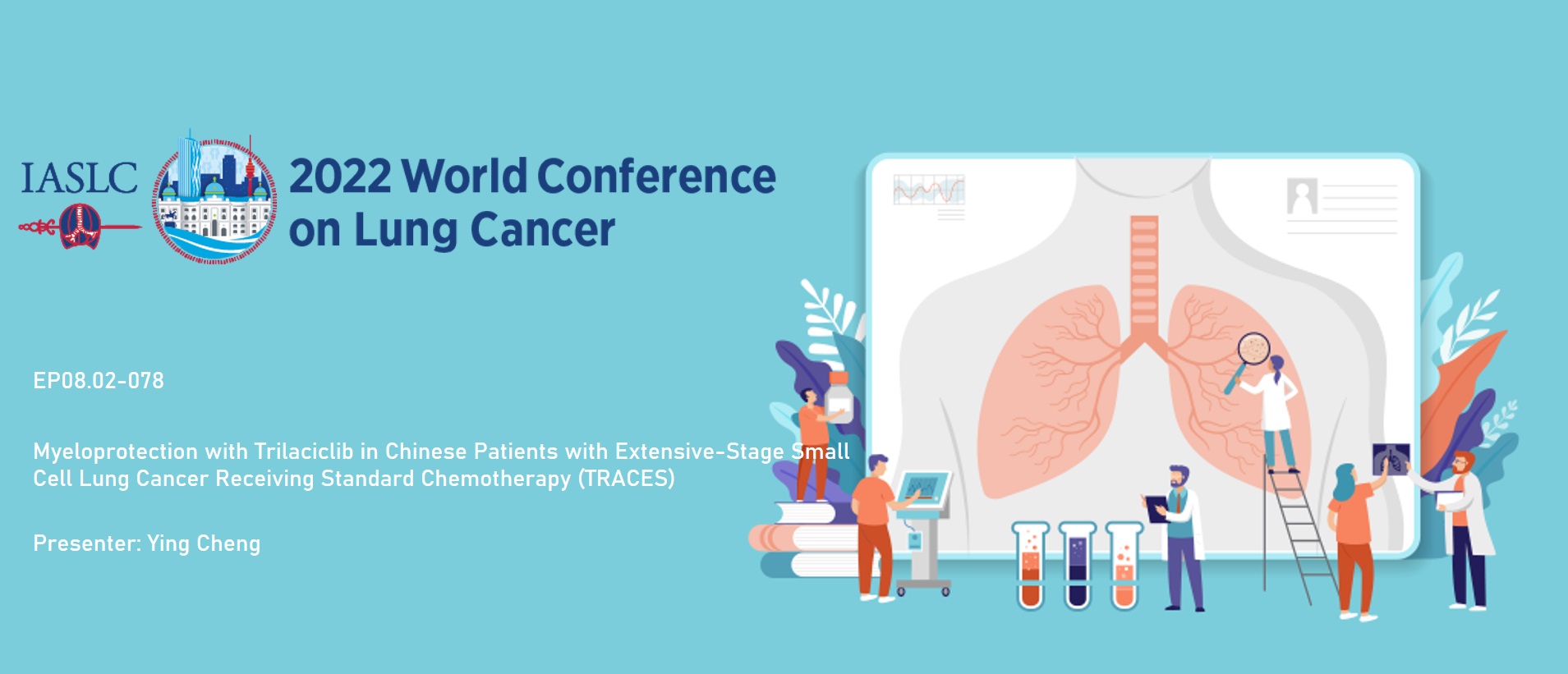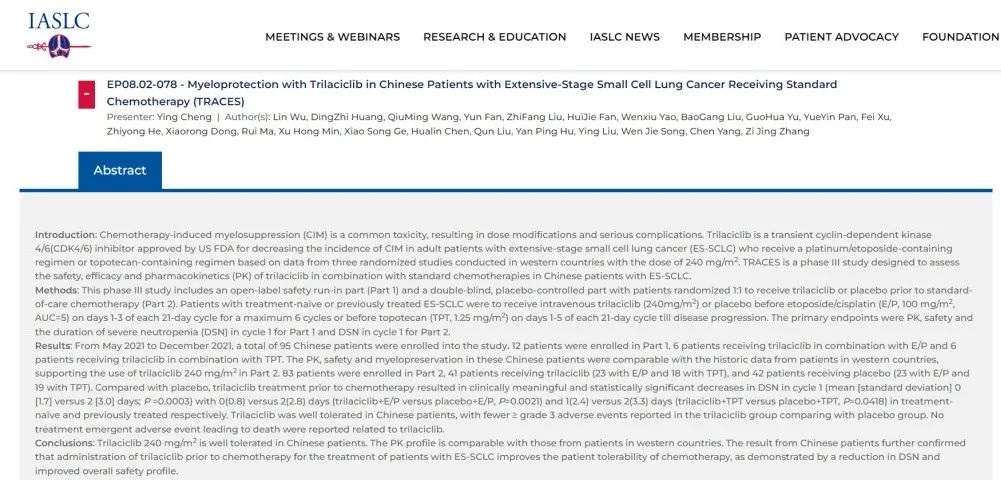July 13, 2022, on the same day COSELA®( trilaciclib hydrochloride for injection), the world's first comprehensive myeloprotection drug against chemotherapy damage wins market approval in China, another good news comes from the World Conference on Lung Cancer (WCLC) website, as data of Trilaciclib phase III clinical trial in China (TRACES study) has been disclosed for hte first time in a poster of WCLC 2022 annual meeting. Study results have confirmed that the safety and myeloprotection effect of trilaciclib in Chinese patient are consistent with the previously published clinical data in the Western population.

Chemotherapy-induced myelosuppression (CIM) is a common toxicity, resulting in dose modifications and serious complications. Trilaciclib is a transient cyclin-dependent kinase 4/6(CDK4/6) inhibitor approved by US FDA for decreasing the incidence of CIM in adult patients with extensive-stage small cell lung cancer (ES-SCLC) who receive a platinum/etoposide-containing regimen or topotecan-containing regimen based on data from three randomized studies conducted in western countries with the dose of 240 mg/m2.
The TRACES study, led by Professor Ying Cheng at Jilin Cancer Hospital, is a phase III pivotal study designed to assess the safety, efficacy and pharmacokinetics (PK) of trilaciclib in combination with standard chemotherapies in Chinese patients with ES-SCLC.

A total of 95 Chinese patients were enrolled, with 12 patients enrolled in open-label safety run-in Part 1, and 83 patients enrolled in double-blind, placebo-controlled randomized Part 2. The PK, safety and myelopreservation effect in Chinese patients observed from Part 1 were comparable with the historic data from patients in western countries, thus supporting the use of trilaciclib 240 mg/m2 in Part 2.
83 patients were enrolled in Part 2, 41 patients receiving trilaciclib and 42 patients receiving placebo prior to chemotherapy administration. Compared with placebo, trilaciclib treatment resulted in clinically meaningful and statistically significant decreases in DSN in cycle 1 (mean [standard deviation] 0 [1.7] versus 2 [3.0] days; P =0.0003). Trilaciclib was well tolerated in Chinese patients, with fewer ≥ grade 3 adverse events reported in the trilaciclib group comparing with placebo group. No treatment emergent adverse event leading to death were reported related to trilaciclib.
Conclusions: Trilaciclib 240 mg/m2 is well tolerated in Chinese patients. The PK profile is comparable with those from patients in western countries. The result from Chinese patients further confirmed that administration of trilaciclib prior to chemotherapy for the treatment of patients with ES-SCLC improves the patient tolerability of chemotherapy, as demonstrated by a reduction in DSN and improved overall safety profile.